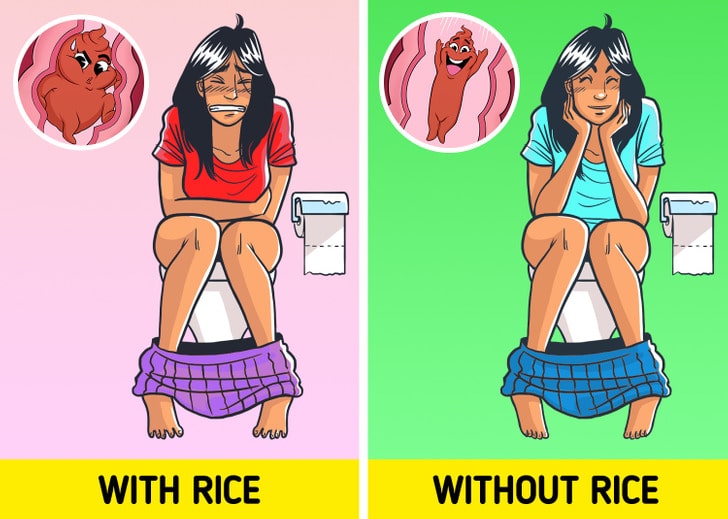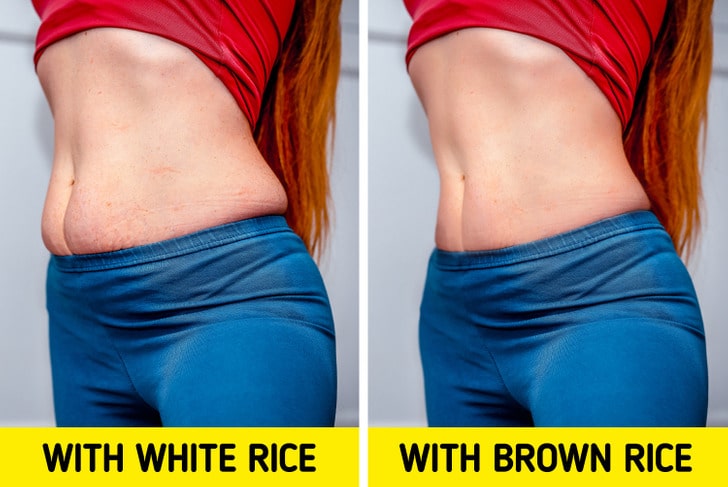Rice is a staple food for more than half of the world’s population and is regularly consumed by people around the world. Although brown rice is considered healthier than white rice because it is richer in vitamins and minerals, people still prefer to eat white rice.
However, this food is still a good source of magnesium, phosphorus, manganese, and other minerals, but we are curious to know what can happen if we eat rice regularly.
You may feel constipated.

Many studies have reported that higher fiber intake is linked to a lower risk of constipation. In fact, one study reported that each additional gram of fiber led to a 1.8% lower chance of constipation.
Processed grains like white rice are lower in fiber, so for people who suffer from constipation, it’s best to reduce your intake of white rice.
You might experience blood sugar spikes.
White rice has a high glycemic index, and according to a study, eating it regularly can increase the risk of type 2 diabetes. However, rice is one of the foods that often finds its place on our tables.
Better to eat brown rice instead of white. While it’s still high in carbohydrates, its antioxidants, fiber, minerals, and vitamins can help control blood sugar.
You may have more belly fat.

White rice is a processed and refined food, so people who want to lose weight may find it difficult to do so. It’s also low in fiber, which will make you feel hungry faster and reach for more food.
So if you are a rice lover, it is better to eat black or brown rice, which is richer in fiber and can help you lose belly fat.
It might raise your cholesterol levels.
Although rice does not contain cholesterol, it can still lead to increased levels of triglycerides or cholesterol. Eating rice in large amounts leads to excess blood sugar, which can cause triglycerides to rise, raising cholesterol levels.
It might increase the chances of heart disease.
Rice accumulates more arsenic than any other food crop. And, a high intake of arsenic can lead to an increased risk of heart disease and cancer.
Arsenic is also toxic to nerves and can affect brain function. People following a rice-based diet are at particular risk of experiencing these conditions.
How often do you eat white rice?









